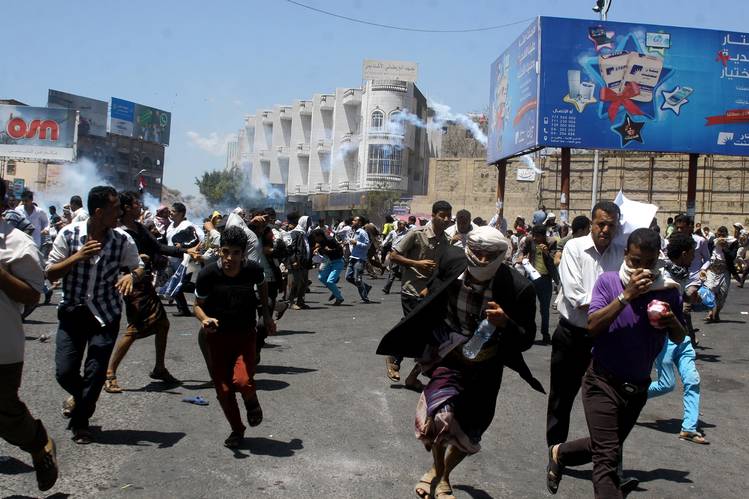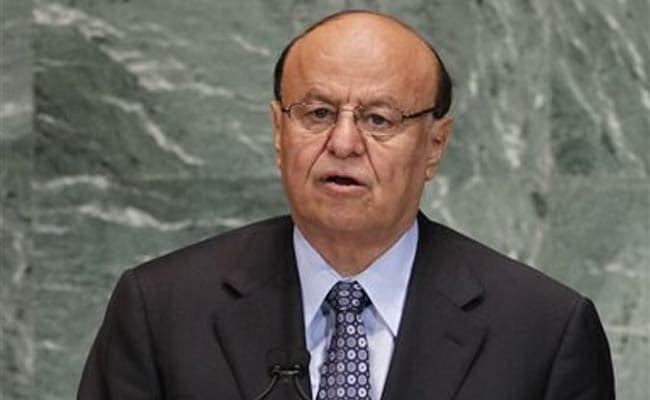Yemen: War Crimes, Mass Starvation and Genocide. What You Aren’t Being Told About US Involvement in Yemen

If the public were to rely solely on the U.S. government and its respective mouthpieces for its source of news, one might assume Iran is to blame for the current crisis engulfing Yemen, the Arab world’s poorest country.
“At least 10,000 people have been killed and more than 3 million displaced in the war in Yemen, now in its third year. Millions of people are also struggling to feed themselves.
“‘We will have to overcome Iran’s efforts to destabilize yet another country and create another militia in their image of Lebanese Hezbollah, but the bottom line is we are on the right path for it,’ Mattis [Secretary of Defense Jim Mattis] told reporters in Riyadh after meeting senior Saudi officials.”
Note how the Reuters report explains the current humanitarian crisis but then transitions into a statement from the Trump administration that directly apportions the blame for that crisis to the Iranian government.
Is Iran to blame for the current crisis in Yemen?
In 2015, I wrote an article for Truthout in which I analyzed a number of Guardian articles that claimed, without question, that the Houthi rebels leading an insurrection in Yemen were “Iran-backed.” Most of the time, the claim was presented without any evidence, though the Guardian occasionally provided a hyperlink for the source. By clicking on the hyperlinks I found the Guardian was failing to provide evidence that Iran was backing rebels in Yemen. In one of the examples, the hyperlinked article was an article where a “source” had revealed that fighters who were trained in one of the Gulf States (which was not specified) — who numbered no more than ten altogether — had arrived in Yemen; hardly proof of anything.
In turn, Media Lens, an organization that analyzes media bias and propaganda, shared the article with the Guardian author in question, Ian Black, to elicit a response on Twitter. The Guardian author did respond (indirectly), by sharing an article from Reuters titled “Iranian support seen crucial for Yemen’s Houthis.”
Sounds promising, right? Here is a direct quote from the article:
“Exactly how much support Iran has given the Houthis, who share a Shi’ite ideology, has never been clear.” [emphasis added]
The article relies entirely on unnamed sources in order to promulgate a number of claims that even Reuters couldn’t verify. For example:
“He [an unnamed Iranian official] said about 100 Houthis had traveled to Iran this year for training at a Revolutionary Guards base near the city of Qom. It was not immediately possible to verify this claim.” [emphasis added].
If Iran, which has relatively low military spending — and is mired by crippling economic sanctions imposed by the U.S. — is truly capable of destabilizing Yemen, then surely the mainstream media would be able to provide concrete evidence of this Iranian-Houthi relationship. Claims that there is an Iranian arms supply to Yemen have been extensively debunked. A recent report that attempted to show that Iran had an arms supply route to Yemen concluded that some (emphasis on some) weapons that arrived in Yemen via Somalia were “probably supplied with the complicity of Iranian security forces.” Probably supplied…would this hold up in a court of law?
In addition to their lack of direct proof, these reports also fail to answer two important questions. First, how is it that Iran is able to ship weapons to Yemen in the face of a Saudi-imposed blockade, which has completely devastated the country?
And second, why is it that as late as January of this year, U.N. experts were unable to find any evidence of large-scale Iranian involvement? As noted by the U.N. experts who presented a report of their findings to the U.N. Security Council:
“The panel has not seen sufficient evidence to confirm any direct large-scale supply of arms from the Government of the Islamic Republic of Iran, although there are indicators that anti-tank guided weapons being supplied to the Houthi or Saleh forces are of Iranian manufacture.” [emphasis added]
If you are inclined to think that the origin of manufacture is proof of direct interference, perhaps you should read this report that outlines how the U.S. has armed both sides of the conflict.
Though the U.N. experts could not find ample evidence of Iranian interference, they did find mounting evidence of war crimes committed by Saudi Arabia (in fact, this was the sole purpose of the report.)
It is because of this complete lack of evidence of any tangible Iranian involvement in Yemen that even the Washington Post had no choice but to publish the following:
“Yet as [the author] argued in a recent article in the May 2016 issue of International Affairs, the Chatham House journal, Tehran’s support for the Houthis is limited, and its influence in Yemen is marginal. It is simply inaccurate to claim that the Houthis are Iranian proxies.”
But we should never let these facts get in the way of a good story. If you repeat a lie enough times, people will believe it. If you repeat the claim that Saddam Hussein is developing weapons of mass destruction, people will believe it is justified to attack Iraq. If you repeat the claim that in 2011 Muammar Gaddafi was a genocidal maniac who ordered his forces to commit mass rape (the same people he offered free health care), people will believe it is justified to attack Libya. If you repeat the claim that Bashar al-Assad used chemical weapons in the major documented attacks in 2013 (even though U.N. investigators concluded he didn’t) and that he used them again in 2017 (even though very prominent intellectuals have concluded the U.S. intelligence does not support this conclusion), then people will believe it is justified to attack Syria.
If you repeat the claim over and over that the Houthi rebels are backed by Iran, people will believe it.
No one doubts that Iran has a stake in the Yemen conflict and has probably tried its best to send support in some way or another (whether political, symbolic, or by direct military assistance). But the fact remains that the mainstream media is unable to provide any shred of direct intelligence or conclusive evidence of any large scale involvement that has contributed to the destabilization of Yemen.
The other twisted aspect of this narrative worth highlighting is that if Iran was arming rebels in Yemen, it would be the most literal translation of the phrase “chickens coming home to roost,” as Saudi Arabia has spent vast sums of money arming fanatical jihadist rebels to topple Iran’s close ally in Syria. Hillary Clinton’s leaked emails show the Obama administration was well aware that Saudi Arabia and Qatar were directly sponsoring ISIS.
War Crimes, Genocide, and Mass Starvation
 Yemen is home to al-Qaeda in the Arabian Peninsula (AQAP), the brand of al-Qaeda that Washington previously regarded as the deadliest. It is also home to ISIS because the terror group capitalized on the instability and managed to latch itself onto a decent foothold in the war-torn country. Yet Saudi Arabia is not targeting either of these two groups. Further, the Houthi rebels are actually sworn enemies of these two violent terror groups; if Washington were genuine in prosecuting its war against al-Qaeda, then the Houthis would technically be a natural ally.
Yemen is home to al-Qaeda in the Arabian Peninsula (AQAP), the brand of al-Qaeda that Washington previously regarded as the deadliest. It is also home to ISIS because the terror group capitalized on the instability and managed to latch itself onto a decent foothold in the war-torn country. Yet Saudi Arabia is not targeting either of these two groups. Further, the Houthi rebels are actually sworn enemies of these two violent terror groups; if Washington were genuine in prosecuting its war against al-Qaeda, then the Houthis would technically be a natural ally.
So who are the Saudis bombing? Civilians, plain and simple.
On October 8, 2016, an aerial bombardment targeted a crowded funeral in Sana’a, the capital of Yemen. According to the U.N., more than 140 Yemenis were killed and at least 525 others were injured. The aftermath of this attack was aptly dubbed a “lake of blood.”
To date, the coalition has struck well over 100 hospitals, as well as wedding parties, refugee camps, food trucks, factories, transport routes, agricultural land, residential areas, and schools, to name a few.
According to Martha Mundy, professor emeritus at the London School of Economics, the Saudi coalition has been hitting agricultural land. Noting just 2.8 percent of Yemen’s land is cultivated, she has argued that
“[t]o hit that small amount of agricultural land, you have to target it.”
Even before the war broke out, Yemen was already dependent on imports for 90 percent of its staple foods and almost all of its fuel and medical supplies. When the coalition isn’t directly bombing civilians and civilian infrastructure, the rest of Yemen’s population is suffering due to the Saudi-imposed blockade, which has put half the population at risk of starvation. According to the U.N., over 462,000 children under the age of five are suffering from severe acute malnutrition. (Still believe the U.S.-led coalition, including Saudi Arabia, cares about human rights in Syria?)
The Obama administration, and in turn the recent Trump administration, are well aware that Saudi Arabia’s complete disregard for human rights and its incompetence have led to widespread civilian suffering. As the New York Times reported:
“The first problem was the ability of Saudi pilots, who were inexperienced in flying missions over Yemen and fearful of enemy ground fire. As a result, they flew at high altitudes to avoid the threat below. But flying high also reduced the accuracy of their bombing and increased civilian casualties, American officials said.
“American advisers suggested how the pilots could safely fly lower, among other tactics. But the airstrikes still landed on markets, homes, hospitals, factories and ports, and are responsible for the majority of the 3,000 civilian deaths during the yearlong war, according to the United Nations.”
In addition to supplying billions of dollars’ worth of arms to the Saudi kingdom, U.S. and U.K. personnel provide overwhelming assistance to the Saudi-led coalition to wreak this devastation on Yemen by sitting in the Saudi’s command and control center, for example.
As if this barbarism wasn’t cruel enough, the Saudi-led coalition purposely destroyed the cranes that Yemen used at its port of Hodeidah to uplift cargo, meaning any food and aid that actually makes it through the Saudi blockade never makes it to shore. From Truthout:
“The climax of the blockade strategy was a series of airstrikes on August 17, 2015, that destroyed all of the cranes used to unload container ships at the main commercial port of Hodeidah, Yemen’s only port capable of receiving such ships. The strikes also destroyed an entire World Food Program warehouse, one of the berths, the port authority warehouse, the port control building and the customs building.”
Even at the time of this article’s publication, the Saudis are attempting to take over this key port in Yemen knowing full well the real suffering will be felt by the civilian population. Hodeidah port is “Yemen’s lifeline,” according to the director of the Sana’a Center for Strategic Studies.
The Houthi Movement
Despite all of this mainstream evidence that Saudi Arabia is unleashing the true horror and devastation in Yemen, somehow the Trump administration continues to blame Iran for this catastrophe. In reality, the Houthis are not extensively backed by Iran but are directly assisted on the ground by forces loyal to Yemen’s former president, Ali Abdullah Saleh. Saleh was ousted in 2012 but continues to retain the loyalty of much of the armed forces.
In this context, Yemeni armed forces marched towards its capital, Sana’a, in 2014 and forced the removal of then president Abd-Rabbu Mansour Hadi. In other words, an organic uprising displaced a leader that was widely viewed as a Saudi puppet. Saudi Arabia, with U.S. and U.K. assistance and with the backing of a number of Gulf States, has since insisted on Hadi’s reinstatement by force.

Former President Abd-Rabbu Mansour Hadi
Hadi was already overthrown (by his people nonetheless). What gives Saudi Arabia the right to force this leader on a population that doesn’t want him anymore? Bear in mind, overthrowing one’s leader is something the Saudis claim should happen in Syria, despite the fact that Assad retained his post as Syria’s president with an overwhelming election victory in 2014.
What makes Yemen’s uprising bad and, conversely, what makes Syria’s uprising good? The fact that the Houthis are not al-Qaeda-aligned?
Not to mention that Assad has not been overthrown in almost six years of fighting, compared with Hadi, who was overthrown in a mere matter of months. This should tell one something about the difference between these conflicts. Even with the assistance of Saudi air power — completely empowered by the U.S. and the U.K. — Saudi Arabia is struggling to beat the Houthi movement.
As this conflict rages on at a catastrophic rate with millions upon millions of civilians suffering, it is almost impossible to take the Trump administration’s claims regarding human rights in Syria seriously. Legal experts have already warned the U.S. government that its complicity in these attacks can make them a co-belligerent in Saudi Arabia’s vast, extensive list of war crimes. This warning has not helped at all in deterring the Trump administration from continuing some of Barack Obama’s worst policies.
If the U.S. pulled its support for Saudi Arabia, Yemen’s suffering could stop tomorrow. Rather, the words of Britain’s foreign secretary Boris Johnson brilliantly capture the West’s lack of empathy towards Yemen’s civilian population. He stated that if the U.K. didn’t supply arms to Saudi Arabia, someone else would.
If that’s really how our respective governments feel about war crimes, crimes of aggression, and crimes against humanity, then they should stop pretending to care about human rights in Syria — because they don’t.
To the powers-that-be, Yemenis are nothing more than ants in a warped and barbaric geopolitical chess game that sees Saudi Arabia attempting to assert itself as a regional power.
In this context, the notion that the U.S. would consider supplying Saudi Arabia – a country so backward that women aren’t allowed to drive – with nuclear weapons is nothing short of suicidal.
Meanwhile, Yemen’s plight continues in complete silence. How can this be?


